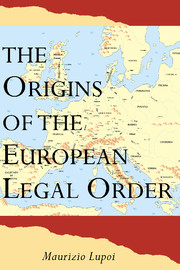Book contents
- Frontmatter
- Contents
- List of abbreviations
- 1 The early Middle Ages: a comparative approach
- 2 A historical and institutional profile of the Roman empire in the fourth and fifth centuries
- 3 Excursus I: ‘Barbarians’
- 4 Historical and institutional profiles of the ‘new dominations’
- 5 Excursus II : The days of the week
- 6 Excursus III: Anglo-Saxon charters
- 7 Consensus by assembly
- 8 Excursus IV: Authority and consensus in judicial decisions
- 9 Public allegiance
- 10 Excursus V: The Anglo-Saxon writ
- 11 Private allegiance
- 12 Open legal systems
- 13 Excursus VI: Textual ‘coincidences’ in documentary forms
- Chronology of popes and sovereigns
- Appendix of sources
- Bibliography
- Index
3 - Excursus I: ‘Barbarians’
Published online by Cambridge University Press: 04 February 2010
- Frontmatter
- Contents
- List of abbreviations
- 1 The early Middle Ages: a comparative approach
- 2 A historical and institutional profile of the Roman empire in the fourth and fifth centuries
- 3 Excursus I: ‘Barbarians’
- 4 Historical and institutional profiles of the ‘new dominations’
- 5 Excursus II : The days of the week
- 6 Excursus III: Anglo-Saxon charters
- 7 Consensus by assembly
- 8 Excursus IV: Authority and consensus in judicial decisions
- 9 Public allegiance
- 10 Excursus V: The Anglo-Saxon writ
- 11 Private allegiance
- 12 Open legal systems
- 13 Excursus VI: Textual ‘coincidences’ in documentary forms
- Chronology of popes and sovereigns
- Appendix of sources
- Bibliography
- Index
Summary
The scope of this excursus
In modern times, discussions of ‘barbarism’ have enabled the expression of prejudices disguised as historical analysis; in past ages, the word ‘barbarian’ conveyed sentiments impossible to state in more precise terms. Hence this extremely ancient word, immortalised by classical Greek authors, has been used chiefly with an apotropaic sense, thereby impoverishing a semantic family which, if properly understood, possesses a formidable capacity for expansion. The word has often been incorporated, with obvious polemical intent, into oxymorons (deliberate, though self-cancelling in context) such as ‘the civilisation of the Barbarians’ or ‘Magistra Barbaritas’, and it is with this impoverished sense that ‘barbarian’ has passed into contemporary language and popular culture. The only difference from the late Roman period and the early Middle Ages is that today the ‘barbarians’, too, know how to write and argue. Only now – in contexts such as the controversy over some institutions of Islamic law or, more simply, residues of medieval law in ‘civilised’ legal systems – can we hear what a ‘barbarian’ of the late Roman age might have replied to his denigration by a world which he may have filled him with awe, but rarely with admiration.
These observations are central to the arguments of this book, and I shall often have cause to reiterate them. Two important recent publications contain a wealth of information and analysis concerning barbaritas, and this enables me to keep this excursus within strict limits.
- Type
- Chapter
- Information
- The Origins of the European Legal Order , pp. 47 - 52Publisher: Cambridge University PressPrint publication year: 2000



